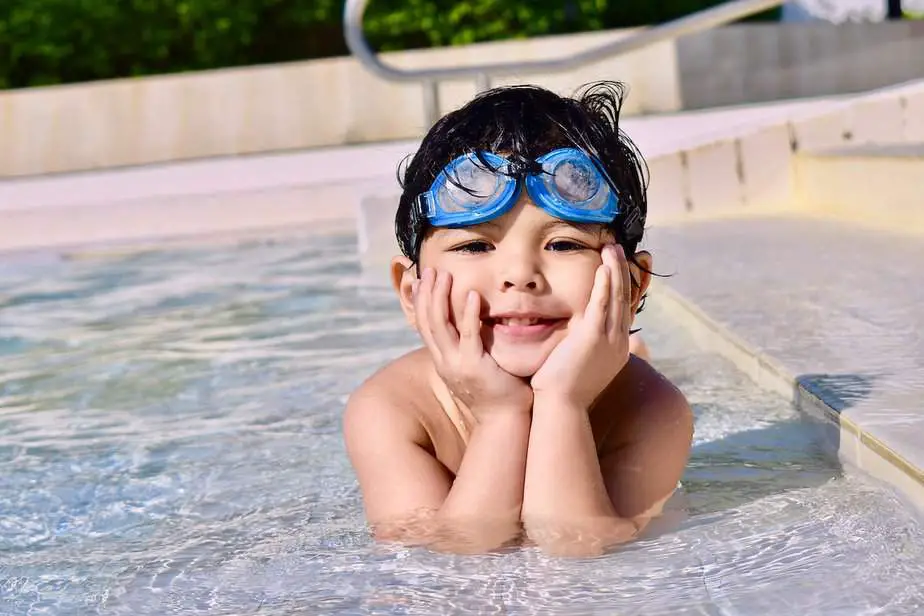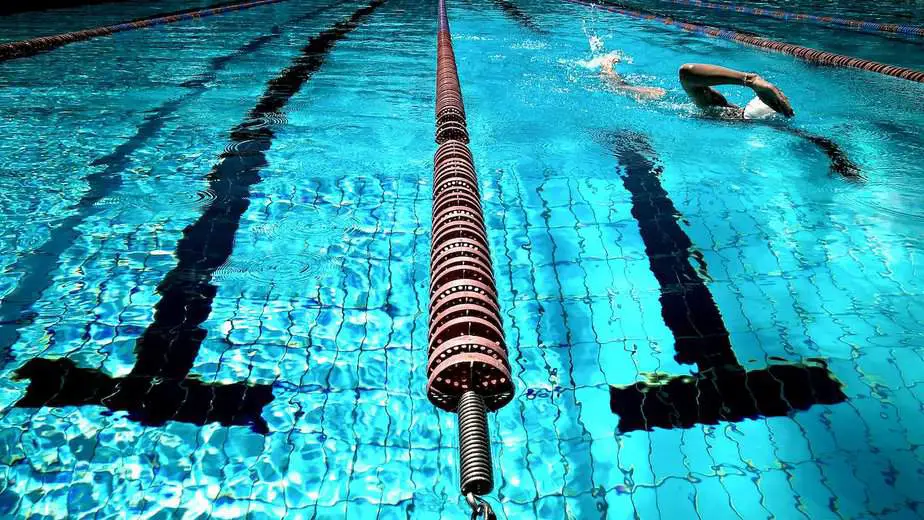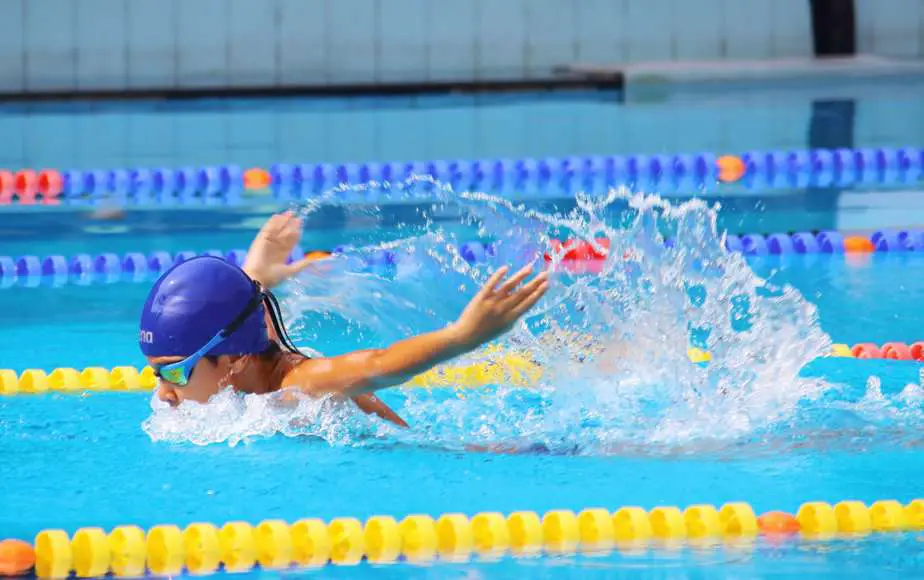If you are wondering when is the best time for your child to stop taking swimming lessons, the answer is: it depends. We cannot provide a general age or time frame because every child’s skill, confidence, and goals are different. There are many factors to consider, and very little of it has to do with time.
Ask yourself the following questions: did you enroll your child in swimming lessons just so that they can learn basic water safety? Does your child plan on doing other hobbies that require them to be a strong swimmer, such as surfing or kayaking? Does your child even like to swim in the first place, or are they being forced to? What are your goals for your child, or an even better question is: what does your child want to do?
If your child has learned the basic swimming skills and achieved his/her swimming goals, then they can stop taking swimming lessons. Some ways to gauge this are, for example, if they suddenly find themselves submerged underwater, are they able to stay calm, find an exit, and swim there without the assistance of a personal flotation device? Do they know how to spot a riptide (when swimming outdoors), tread water, and stay afloat on their back for an extended period of time? Are they satisfied with their own swimming ability? If not, then they should continue taking swim lessons.
If your family lives near the coast and you regularly visit the beach, I think your child should at the very least be able to swim at least a couple hundred yards and know how to float on their back to conserve energy in case they ever get swept away by a riptide. Kids may also want to play with their friends at the local swimming pool, so knowing how to swim can benefit them socially.
I personally think that all children should at least learn basic swimming skills, and there’s nothing wrong with a parent “forcing” their child to learn it initially. However, once they reach the ages of 9-10, there tends to be a mass exodus of kids from swimming lessons as many of them start to develop their own opinions and think that swimming is not cool or fun anymore.
Let’s dive into the most common reasons why many children stop taking swimming lessons, what are some good reasons to quit in the first place, and what are some bad reasons to stop that can be addressed.
Don’t take them out of swimming lessons too early

If your child is still working on learning their basic water safety skills, then that is obviously not a good time to quit.
For instance, if your child was swimming alone without a PFD, or if they suddenly fell into a pool without stairs or a ladder, would they be able to surface, identify the exit, and swim there on their own? If they are outdoors, do you think they have the ability and stamina to handle rough currents or know what to do if they are caught in a riptide?
There is always a risk of drowning, especially when swimming outdoors. Even experienced swimmers have lost their lives due to rough currents. That said, swim lessons are the first layer of protection to prevent drowning. Knowing how to swim will at least give your child a fighting chance in an emergency.
You must also consider the aquatic environments they will be swimming in. If your child only plans on swimming at the local pool, there is less pressure to be a competent swimmer compared to a child that wants to learn how to surf or kayak, where high swimming competency is a minimum requirement.
When should your child stop swimming lessons?

Once your child has reached a point where they are water safe, then it may be time to stop the swimming lessons unless they have plans to go even further with swimming, such as joining a dive team.
How do you know when your child is water safe? Again, this depends on the aquatic environment they plan to be in and what activities they’ll be doing, but here are some straightforward minimum guidelines for gauging swimming competency:
- Can tread water continuously for at least two minutes.
- Can turn 360° in place in the water.
- Can swim a hundred yards (2 laps) without stopping.
- Can float on their back for at least two minutes.
- Can comfortably submerge and swim underwater.
- Can do various swim strokes such as the survival strokes, backstroke, and freestyle.
- Can exit a pool without steps or a ladder.
- Your child is confident in his/her abilities.
If your child will be swimming outdoors, you will have to go even further beyond. Ask the swimming instructor if they offer lessons on how to spot and survive riptides.
Once these goals have been met, then you can consider stopping swimming lessons. If your child wants to learn even more, then talk to their swim instructor about setting new goals.
Bad reasons to stop swimming lessons
Many kids drop out of swimming lessons around age 10. This can happen if the child/parent is satisfied with their progress, but more often than not it is for what I consider to be “bad” reasons. Here are a couple of bad reasons to stop swimming lessons.
They don’t like it
Let me preface what I am about to say by first saying that I think it’s great to let children make their own decisions. Having decisions made for them makes them overly reliant on others to tell them what to do, may affect their self esteem, and may lead to resentment in the long term.
However, this is all assuming that a child is at an appropriate age. In their early years, there’s nothing wrong with a parent forcing their kids to do things because the kids don’t know any better. Would you take any push back from a nine or ten year old seriously?
Many children drop out of swim lessons at around that age because they collectively agreed with their peers that it’s “not cool” or “not fun” anymore. If that is their only reason, then that’s a bad reason.
As a parent, you need to decide if your child has truly learned enough basic water safety skills so that you can trust him/her to go swimming without your supervision. If they don’t understand why they need to learn how to swim, try to explain to them how dangerous the water can be and how fun various water sports are. Hopefully they can be convinced to want to keep going to swimming lessons.
Lack of progression
On the surface, a lack of progress may seem like a great reason to stop swimming lessons. Who wants to waste time, money, and effort?
However, often the reason for lack of progress is simply a lack of effort, either on the child’s part or the swim instructor’s. If your swim instructor is worth his/her salt, s/he would candidly discuss your child’s slow progress and how s/he plans to address this problem.
If the swim instructor has no plan to address your child’s slow progress, then it may be time to switch instructors and not necessarily drop out of swimming lessons entirely. With the right instructor, clear communication, and enough time, your child should be able to at least learn basic water safety skills.
The bottom line
The decision of when to stop swimming lessons is very personal and it depends on your child’s goals and interests, as well as the parent’s to an extent. Learning how to swim is a great skill to have even if you live in a landlocked state. As a parent, you want to have the peace of mind that your child will be safe in any body of water, be it a swimming pool, lake, or ocean.
Knowing how to swim can give your child the confidence to enjoy one of life’s greatest pastimes by going to the beach or pool during the summer, which is great for escaping the heat and helps them out socially. It also opens the door to other water sports such as scuba diving, snorkeling, surfing, kayaking, and the list goes on.
For you to better gauge whether your child at least has basic water safety skills, we provided a checklist above of some criteria that your child should meet before you should even consider letting them drop out of swimming lessons. This is not a definitive list, but it’s a great reference point.
If your child wants to drop out simply because they aren’t enjoying it or there is a lack of progress, talk with the child’s swim instructor about your child’s needs and your concerns. Perhaps there is a better way of doing things, or a better swim instructor who can get the job done.
Once your child has a good grasp on basic swimming skills, or has acquired the ability to achieve his/her goals, then it would be a good time to quit taking swimming lessons. Otherwise, they should keep swimming and hopefully your child will understand what a gift you’ve given them one day.

